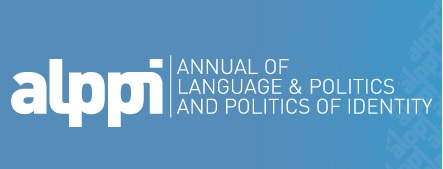The postcolonial hypothesis. Notes on the Czech “Central European” Identity
The postcolonial hypothesis. Notes on the Czech “Central European” Identity
Author(s): Ondřej SlačálekSubject(s): Nationalism Studies, Post-Communist Transformation, Politics of History/Memory, Politics and Identity
Published by: Univerzita Karlova v Praze, Fakulta sociálních věd
Keywords: post-colonial theory; Central Europe; Czech National identity; Central Europe; Ewa Thompson; Milan Kundera;
Summary/Abstract: The article discusses the application of postcolonial theory to the postcommunist situation, something that a number of authors are attempting to do – most notably Ewa Thompson, who connects this analysis with a cultural and political project for contemporary Poland. The article looks at the possible ways in which postcolonial perspectives can be used to analyse national identity in “Europe between Pan-Germanism and Pan-Slavism”, and specifically in the Czech context. It then devotes itself to a genealogical reading of Milan Kundera’s essay on Central Europe, and ends with a discussion on the usefulness of the postcolonial perspective for the analysis of post-communism. It concludes that this perspective is a fertile source of inspiration for comparative hypotheses and research questions, but that its full acceptance may be both methodologically and politically problematic. The “authenticity” of Central Europe has been constructed by the dominant Central European spokespeople in opposition to the “subaltern empires” of Germany and Russia as “more Western than the West”. The postcolonial perspective and the study of the Czech national identity were for a long time considered largely in isola-tion from each other. This essay first discuss the general possibilities of applying postcolonial approaches to Central European identities, and concretely to the Czech identity in the wider context of the development of Central European national identities in the last two hundred years. Then it tries, using a genealogical interpretation of Kundera’s essays onCentral Europe, to show some of the characteristics of Kundera’s “Czech Central Europe”. Finally I discuss the possibil-ities of a postcolonial view of Czech and Polish post-communism. I conclude that it is worth using some concepts in postcolonial studies to the national identities ofCentral Europe(and their post-communist situation) above all as hypothe-ses and sources of questions.
Journal: ALPPI Annual of Language & Politics and Politics of Identity
- Issue Year: X/2016
- Issue No: Spec.
- Page Range: 27-44
- Page Count: 18
- Language: English

